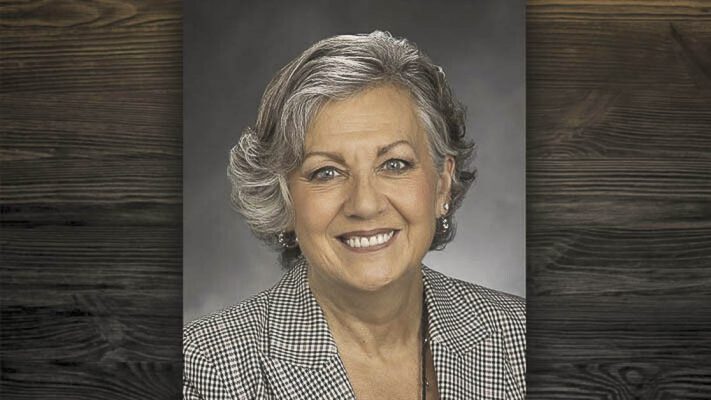
Sen. Lynda Wilson is concerned the drop-off in income tax revenue may prompt an effort from legislative Democrats to expand the tax
The budget leader for Senate Republicans says a sharp decline in the amount of state capital gains tax being collected is behind the largest negative state revenue forecast since the COVID-19 pandemic.
Sen. Lynda Wilson, R-Vancouver, is concerned the drop-off in income tax revenue may prompt an effort from legislative Democrats to expand the tax.
Wilson chairs the state Economic and Revenue Forecast Council. Today the bipartisan panel of legislative- and executive-branch leaders adopted a second-quarter forecast that shows a $666 million revenue drop through the next two budget cycles: a decline of $477 million for the 2023-25 fiscal biennium and $189 million for the 2025-27 biennium.
The decline shouldn’t knock the current budgets out of balance, Wilson added, as there is ample money in reserve plus three more quarterly forecasts – two more in 2024 and the first of 2025 – to consider. She offered this assessment following the council vote:
“When we adopted the year’s first-quarter forecast in February, the state’s chief economist warned us to expect slow economic growth – but the economy is not to blame for this predicted drop in revenue. The change in this quarter’s forecast goes hand-in-hand with a sharp decline in the state’s capital-gains tax collections.
“In its first year the capital-gains tax took in about $800 million; here in year two the collections are on track to total about half that much. This is exactly the kind of volatility I and others predicted when the majority Democrats adopted the capital-gains tax.
“When a tax fails to bring in the anticipated level of revenue, it’s almost inevitable that someone will want to cast the net wider and capture more money. Our Democratic colleagues already proposed that idea, and we should expect they will do so again.
“The thousands of Washingtonians already subject to the capital-gains tax include people who have spent years building a business, then sell it to retire. Next thing you know, someone will suggest adding home sales to the list of things covered by the capital-gains tax, and that would hit far more people.
“I’ve said it before: The capital-gains tax doesn’t pay for anything that can’t be funded with other revenue. Our schools and other important things like access to childcare never should have been tied to such a volatile tax. Today’s forecast is proof.”
Also read:
- Opinion: Schools notifying parents about the kinds of care kids can decide on their own didn’t make itElizabeth New criticizes the removal of Amendment 1164 from current legislation, arguing it leaves parents uninformed about health care services accessed by their children through schools.
- Ridgefield School District invites community to help shape new Strategic PlanRidgefield School District is hosting three public sessions to gather community input for its new Strategic Plan.
- Julianne Lawrence is first paid director of Two Rivers Heritage MuseumJulianne Lawrence has been appointed the first paid director of the Two Rivers Heritage Museum following a strategic effort by the Camas-Washougal Historical Society.
- Foundation for Vancouver Public Schools breaks ground on new building to support construction trades at Fort Vancouver High School with the Ed and Dollie Lynch FundFort Vancouver High School will soon be home to a donor-funded trades center focused on welding and advanced manufacturing education.
- Save Vancouver Streets has its day in court, waits on rulingSave Vancouver Streets went to court to argue that the city must allow its initiative to proceed after collecting more than 6,500 signatures.
- Opinion: Off-road vehicles in the neighborhoodDoug Dahl responds to a resident’s concern about off-road vehicles on neighborhood streets, outlining the legal violations and safety risks involved.
- IBR only has single firm interested in managing the project to replace I-5 BridgeRep. John Ley reports on serious concerns with the I-5 Bridge replacement project, including limited contractor interest, rising tolls, and a 15-year timeline.











